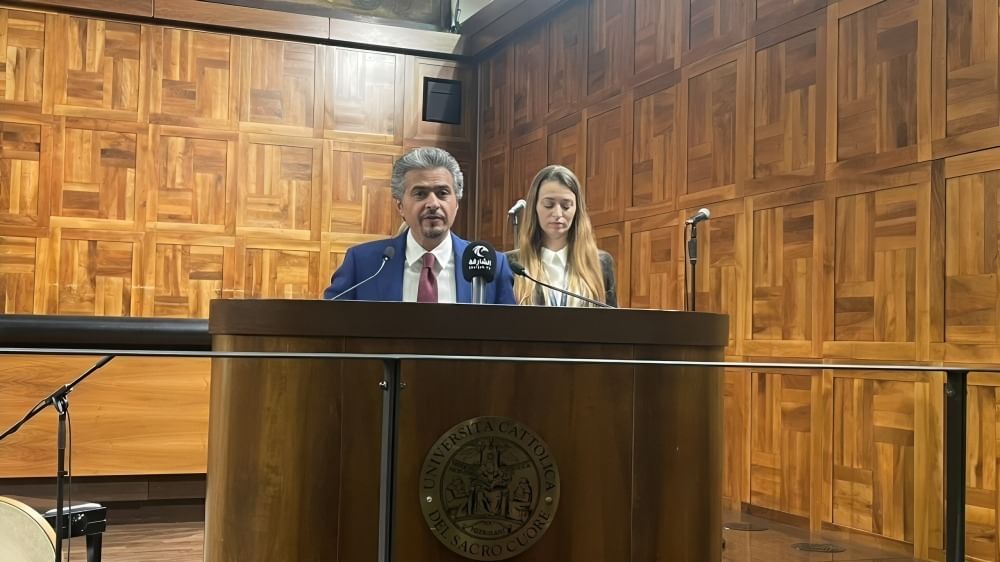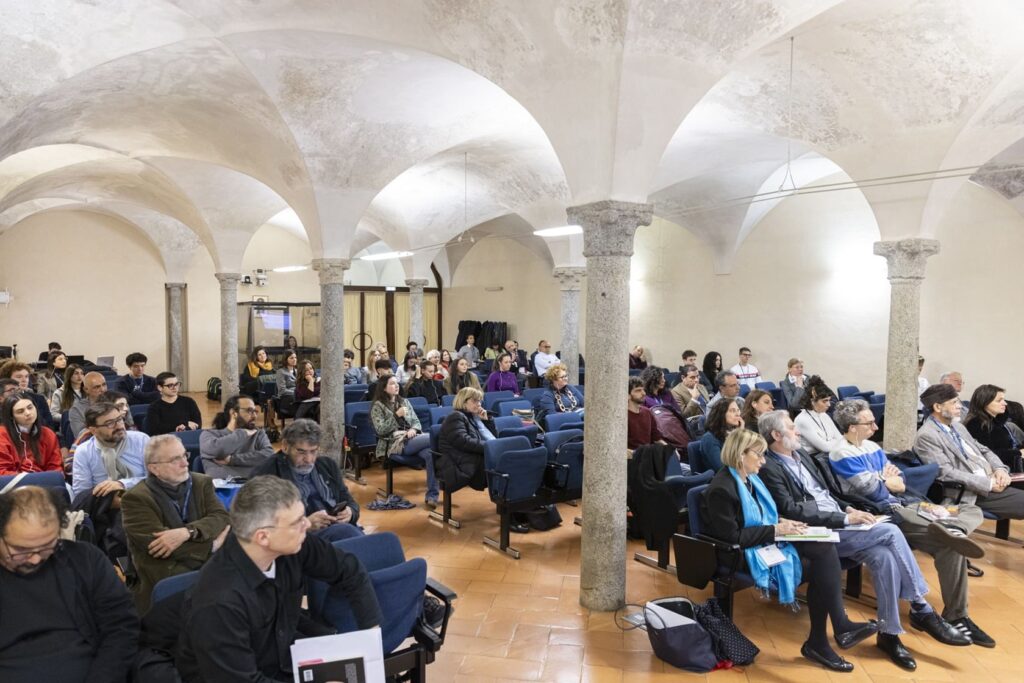The activities of the seventh session of the International Festival of Arabic Language and Culture were concluded in the Italian city of Milan, which was held under the auspices of the Sharjah Book Authority and organized by the College of Linguistic Sciences and Foreign Literatures and the Arabic Language Research Center at the Catholic University, under the title “Language and Artificial Intelligence: A Limit to the Past or a Horizon for the Future.”
“In a step that reflects the spirit of the global cultural mission of the Emirate of Sharjah and confirms the vision of His Highness Sheikh Dr. Sultan bin Muhammad Al Qasimi, Member of the Supreme Council and Ruler of Sharjah, in highlighting the role of the Arabic language as a bridge for civilizational and cultural communication between peoples.
The events were attended by His Excellency Ahmed bin Rakad Al Ameri, CEO of the Sharjah Book Authority, Mario Cristina Gatti, Director of the Arabic Language Research Center at the University, His Excellency Muhammad Hassan Khalaf, Director General of the Sharjah Radio and Television Authority, and Dr. Amhamed Safi Al Mosteghanemi, Secretary General of the Arabic Language Academy in Sharjah, while participating in The festival sessions included 35 researchers from 18 countries, including 9 Arab countries: the United Arab Emirates, Egypt, Iraq, Morocco, Lebanon, Syria, Algeria, Yemen and Palestine, in addition to Turkey’s presence for the first time. The festival also hosted 12 academics and university professors from the Catholic University in Italy.
The seventh session of the festival sought to explore the intersections of artificial intelligence with Arabic language and culture, highlighting key topics that include “ethics and legislation of artificial intelligence” and its role as a translator who crosses linguistic borders, as a poet who organizes poems, and as a novelist who weaves stories.
The festival also focused on the impact of artificial intelligence on language teaching and its applications in the language of social communication. It discussed “the role of artificial intelligence in the scientific research and philosophy sector” and its potential in “restructuring the Arab heritage” with a focus on “its impact on language and the arts” in a way that enhances the status of Arabic as a living language. Interact with modern technologies.
His Excellency Ahmed bin Rakkad Al Ameri had stressed in a keynote speech at the opening ceremony of the festival that pride in one’s own language is pride in all languages, as the diversity of languages is a necessity for the diversity of cultures, and it is not possible to imagine the world in one language because this means that cultures lose much of the beauty and incentives for learning and discovery, highlighting Shedding light on the major project led by His Highness Sheikh Dr. Sultan bin Muhammad Al Qasimi, Member of the Supreme Council and Ruler of Sharjah, which is the historical dictionary of the Arabic language, of which 67 volumes have been published to date covering 15 of the 28 letters of the Arabic language.
For his part, Dr. Wael Farouk, director of the festival, said: “The participants in this year’s session presented ideas on the topic of ‘Language and artificial intelligence: a limitation of the past or a horizon for the future.’
The opening session presented by Mario Cristina Gatti, director of the Arabic Language Research Center at the university, also witnessed the launch of The first Italian translation of the poetry of Al-Mu’allaqat, which is considered one of the most famous classical texts in the history of Arabic poetry. It is a translation presented by Jolanda Guardi, and it presents a poetic reading by the Iraqi poet and translator Kazem Jihad on the occasion of the publication of his collection of poems in the Italian language.
The festival devoted sessions on the digitization of the Arabic language, artificial intelligence, imagination, artificial intelligence, and translation, with the participation of Dr. Emhamed Safi Mosteghanemi, Secretary General of the Arabic Language Academy in Sharjah, who reviewed the emirate’s experience in collecting and publishing the largest historical dictionary of the Arabic language as a successful example of digitization.
The translators, Muhammad Haqqi Sushin, Samir Greiss, and Naglaa Wali, raised questions about the capabilities of artificial intelligence as a translator of literary texts, the role of literary translators in the era of artificial intelligence, and the ways in which literary translation can benefit from artificial intelligence.
source/content: wam.ae (headline edited)
_________


____________________________________________________________________
ARABIC LANGUAGE / 09 COUNTRIES / SHARJAH, UNITED ARAB EMIRATES